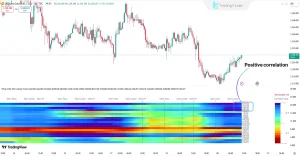
Municipal bonds are a common investment option, but there are a few factors to consider before you buy them. First, understand the term “call risk.” A call is a possibility for the issuer to redeem the bond before its maturity. This can be done for several reasons, including changes in interest rates, market conditions, or an issuer’s credit rating. Typically, municipal bonds that are a call risk are those that have been issued by municipalities that have experienced economic difficulties. These bonds are sometimes referred to as market discount bonds.
Another benefit of municipal bonds is that they provide tax-free income. Typically, municipal bonds pay a lower interest rate than taxable bonds, so investors with lower marginal tax rates will likely prefer them. Additionally, many bonds allow early repayment, and you can typically receive a premium for doing so. However, you should be aware that the early repayment option will end your income stream and require you to repay the debt early.
Another advantage of muni bonds is their low default risk. However, when interest rates go up, market prices can tank. Moreover, fixed payments become less attractive as inflation increases. That’s why it’s important to diversify your portfolio with short, intermediate, and long-term bonds. A financial advisor can help you build a bond ladder. By owning shorter, intermediate, and long-term bonds, you can avoid playing the interest rate guessing game.
Municipal bonds have a low risk and can be used to fund a wide variety of projects. For example, revenue bonds are used for bridges and toll roads. These types of bonds also fund electric power plants and wastewater treatment facilities. In certain cases, municipalities can issue revenue bonds on behalf of other private entities. These bonds are usually tax-exempt.
Most individuals purchase municipal bonds because they can obtain favorable tax treatment. The majority of municipal bonds are exempt from federal income tax. In addition, some are exempt from state and local taxes. As long as the issuer meets the requirements for tax-free bonds, it is likely that the tax-exempt municipal bond rate will be lower than the taxable rates.
A municipal bond can provide a significant income stream for investors. Municipal bonds are often issued for public use and are intended to provide a source of long-term funding for local governments. Municipal bonds typically pay a fixed amount of interest while the investor holds the bonds. When the bond matures, the money is returned to the investor.
In the United States, over four thousand municipalities issue municipal bonds. The funds raised through these bonds have financed an estimated $2 trillion in new infrastructure. This number is likely to grow by another $2 trillion to $3 trillion within the next decade. Municipal bonds are safe investments and the market for them is stable. In addition, they offer the investor periodic interest payments and principal repayment when the bonds mature.






